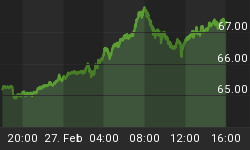People are flocking to the southern European island country of Malta--and it’s not for a beach vacation. For $1.3 million, wealthy people are buying the nation’s citizenship as part of the government’s "golden passports" scheme designed to attract investors and tourists. At the same time, human rights groups are accusing the Maletese government of “despicable and illegal tactics” to turn away migrants and refugees from North Africa attempting to reach the EU.
To the super-rich, a second citizenship buys much more than a travel document – it also buys status, makes investing easier and can take a bit out of taxes (if you’re not a U.S. citizen). It can also buy an elite education or serve as a political bulwark.
But this year, there’s yet another reason: Bypassing COVID-19 travel restrictions and in some cases even better healthcare at a time when other major hospitals are overrun by the pandemic.
According to the latest report by investment immigration and relocation provider Astons, the interest of wealthy people in buying secondary citizenship during the pandemic has skyrocketed in 2020.
UK-based passport broker Henley & Partners saw a 42% increase in overall citizenship applications this year. “’Investment migration’ has shifted from being about living the life you want in terms of holidays and business travel to a more holistic vision that includes healthcare and safety,” the company said.
The most popular “pandemic passports” or permanent residency programs are those of Australia, Antigua, St Kitts and Nevis, Tuvalu, Vanuatu, Austria, Switzerland, Portugal, Cyprus, Malta and Montenegro.
Buying second citizenships or residencies isn’t a new thing, but it’s increasingly being used to avoid criminal or civil proceedings or evade taxes and bust sanctions, in addition to the more legitimate reasons listed above.
In 2018, the Organization for Economic Co-operation & Development (OECD) blacklisted
21 locations that it believes are undermining international efforts to combat tax evasion.
Related: Dead Malls Could Be Amazon’s Next Target
In its 2016 report, property group Knight Frank detailed the cost of buying second citizenship and the most expensive are the UK, Singapore and Austria whose passports go for up to $23 million.
The cheapest locations in which to buy citizenship are Caribbean nations. Buying second citizenships ranges from $100,000 in the island of Dominica to a minimum of $2.4 million in Cyprus.
Three European countries – Malta, Monaco and Cyprus – are among those nations flagged as operating high-risk schemes that sell either residency or citizenship.
In fact, the Cyprus program was terminated last month, after receiving heavy criticism that it was being abused.
Other names on the list are Bahrain, Colombia, Malaysia, Mauritius, Panama, Qatar, Seychelles, Turks and Caicos Islands, United Arab Emirates and Vanuatu. Mauritius, for one, saw a 200% wealth growth since 2007, making it the fastest growing wealth market in Africa.
Since many of these countries are heavily dependent on tourism, and the lockdowns and travel restrictions left them cash stranded, quite a few are offering various deals to attract potential citizens.
St. Kitts and Nevis announced the sale of a four-person family package for a donation of $150,000, down from the original price tag of $190,000.
“St Kitts and Nevis' record to date of zero hospitalisations and zero fatalities from the disease underlines the character and enduring appeal of our great country. This limited time offer will provide the resources to help us successfully fight COVID-19 and enhance the safety nets for those who have lost their jobs or income as a consequence,” Timothy Harris, Prime Minister of Saint Kitts and Nevis, said.
Other than the pandemic, political instability in the U.S. is also a reason for rich Americans seeking a second home country.
In late November, financial advisory firm Apex Capital Partners launched the “American Second Passport Program” for those concerned about Joe Biden’s presidential victory, whether it is an eventual tax increase or just political.
The company said it witnessed a 650% increase in interest since the presidential election alone, compared to 2019. Under the program, the company provides the legal means for acquiring second citizenships, passports and permanent residency in other countries, often in the Caribbean or Europe.
The company is offering a 35% off program until January 20th, Inauguration Day.
By Michael Kern for Safehaven.com
More Top Reads From Safehaven.com:
















